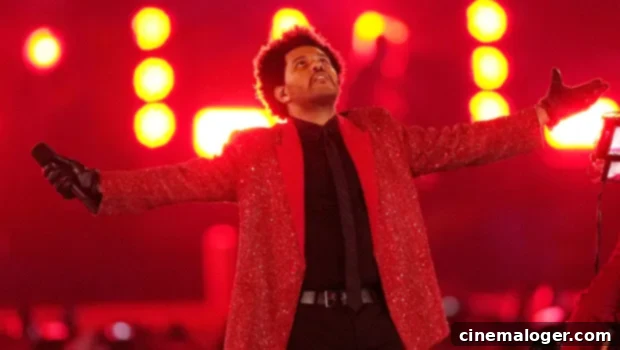The Grammy Awards Under Fire: Unpacking Artist Boycotts and Industry Discontent
- Several prominent music stars, including The Weeknd and Kanye ‘YE’ West, have famously boycotted or criticized the Grammy Awards.
- The Weeknd’s public stance against the Grammys intensified after his critically acclaimed After Hours album received no nominations in 2021.
- Despite his vow of non-participation, The Weeknd still received a Grammy award in 2022 for a featured performance.
Each year, the announcement of Grammy Award nominations by the Recording Academy inevitably sparks debate. Critical oversights, shocking exclusions, and notable snubs often dominate headlines, leading many to question the Academy’s decision-making process. In a powerful display of discontent, some artists have decided to “snub” the Grammys right back, choosing to boycott the ceremony and voice their frustrations. In 2021, The Weeknd, born Abel Tesfaye, became the latest A-list star to publicly denounce the awards, vowing never to submit his music for consideration again.
While some might dismiss these boycotts as mere “sour grapes,” the motivations often run deeper than personal vendettas. Many artists who have turned their backs on the Grammys have done so in protest of long-standing systemic issues within the awards show, most notably allegations of racial bias. Since its establishment in 1957, only a handful of Black artists have won the coveted Album of the Year award: Stevie Wonder (who first achieved this remarkable feat in 1974), Michael Jackson, Lionel Richie, Quincy Jones, Natalie Cole, Whitney Houston, Lauryn Hill, Outkast, Ray Charles, and most recently, Herbie Hancock in 2008. Hancock’s win, however, was for a tribute album featuring Joni Mitchell covers, rather than one of the trailblazing, now-classic albums from his own groundbreaking career. This pattern highlights a persistent concern that, for many, the Grammys fail to consistently recognize and celebrate Black artists in major categories. Thus, while some artists may simply disregard the Grammys out of indifference, others — from the significant mass boycott of 1989 to the more recent stance taken by Frank Ocean — boycott for profound, principled reasons.
The Weeknd’s Stance Against the Grammys
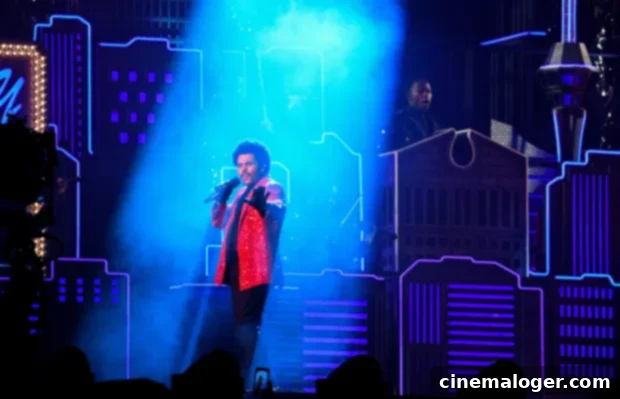
In a candid interview with The New York Times, The Weeknd explicitly stated, “Because of the secret committees, I will no longer allow my label to submit my music to the Grammys.” This decisive declaration came in the wake of the 63rd Grammy nominations, which shockingly excluded his highly successful 2020 album, After Hours, and its record-breaking hit single, “Blinding Lights.” The album had received widespread critical acclaim and achieved immense commercial success, making its complete shutout from all categories a major point of contention within the music industry. Following the announcement, The Weeknd took to Twitter, expressing his outrage: “The Grammys remain corrupt. You owe me, my fans, and the industry transparency…”
The unprecedented shutout of After Hours brought intense scrutiny to a lesser-known aspect of the Grammy selection process: the influence of anonymous expert committees. As highlighted by the Times, these committees “review initial nomination choices by the thousands of music professionals who make up the voting membership of the Recording Academy… and — for 61 of the Grammys’ 84 categories — have the final say about who makes the cut.” This lack of transparency, where a small, unelected group can override the broader voting body, has fueled accusations of favoritism and a disconnect from popular and critical consensus. In response to The Weeknd’s public protest, Harvey Mason Jr., the Recording Academy’s interim chief executive at the time (who took over amidst controversies surrounding the ouster of previous presidents, Deborah Dugan and Neil Portnow, as detailed by Vulture here), acknowledged the discontent. He stated that the Academy was “disappointed when anyone is upset” and committed to “constantly evolving,” promising to “take a hard look at how to improve our awards process, including the nomination review committees.” However, for many artists, these assurances felt insufficient without concrete structural changes.
The Grammys remain corrupt. You owe me, my fans and the industry transparency…
— The Weeknd (@theweeknd) November 25, 2020
Despite the Recording Academy’s attempts to address the criticism, The Weeknd remained steadfast in his conviction. In an interview with Billboard in late January, he declared, “I personally don’t care anymore. I have three Grammys, which mean nothing to me now, obviously. It’s not like, ‘Oh, I want the Grammy!’ It’s just that this happened, and I’m down to get in front of the fire as long as it never happens again.” He viewed his protest as a necessary stand for industry-wide integrity rather than a personal quest for accolades.
Further elaborating on his position in a May 2021 interview with Variety, Tesfaye emphasized the deep-seated mistrust that had developed between artists and the Grammy organization over time. “The trust has been broken for so long between the Grammy organization and artists that it would be unwise to raise a victory flag,” he asserted. He stressed the importance of a truly transparent system for any future wins to be genuinely celebrated. Despite some procedural changes made by the Recording Academy, including the elimination of the controversial “secret committees” system in certain categories, The Weeknd remained unconvinced. “I remain uninterested in being a part of the Grammys, especially with their own admission of corruption for all these decades. I will not be submitting in the future.” This unwavering commitment signaled a profound disillusionment with the institution.
Interestingly, despite his powerful vow, The Weeknd inadvertently won a Grammy in 2022. This occurred when Kanye ‘Ye’ West’s track “Hurricane,” featuring The Weeknd and Lil Baby, was awarded Best Melodic Rap Performance. This particular win highlights the complexities of artist boycotts, as an artist may still receive an award for collaborative work even if they refuse to submit their own projects. It underscores that while an artist can control their submissions, they cannot always control their presence on winning collaborations.
Justin Bieber’s Classification Concerns
Justin Bieber also chose to skip the 2021 Grammys. According to Page Six, his absence was partly due to not being scheduled to perform. This wasn’t his first Grammy snub; he also didn’t attend the 2017 ceremony, despite being nominated for four awards, including Album of the Year for his critically acclaimed album Purpose, reportedly opting for sushi instead.
Beyond his absence, Justin Bieber also voiced strong objections to the 63rd Grammy nominations, albeit from a different angle than The Weeknd. Unlike Tesfaye, Bieber actually secured several nominations: Best Pop Solo Performance (“Yummy”), Best Pop Duo/Group Performance (“Intentions,” with Quavo), Best Pop Vocal Album (for Changes), and Best Country Duo/Group Performance (for “10,000 Hours,” his collaboration with Dan + Shay). However, Bieber took issue with the categorical placement of his album, Changes, which was nominated in pop categories instead of R&B. He expressed his sentiments in an Instagram post, stating: “I am flattered to be acknowledged and appreciated for my artistry. I am very meticulous and intentional about my music. With that being said, I set out to make an R&B album. ‘Changes’ was and is an R&B album. It is not being acknowledged as an R&B album, which is very strange to me.”
View this post on InstagramA post shared by Justin Bieber (@justinbieber)
Bieber elaborated on his intention with the album: “I grew up admiring R&B music, and wished to make a project that would embody that sound. For this not to be put into that category feels weird, considering from the chords to the melodies to the vocal style, all the way down to the hip-hop drums that were chosen, it is undeniably, unmistakably an R&B album!” While he clarified that he was grateful for the recognition, his comments underscored a broader issue of genre miscategorization at the Grammys, where artists feel their creative intentions are misunderstood or disregarded by the Academy’s labeling system.
Kanye West: A History of Grammy Provocation
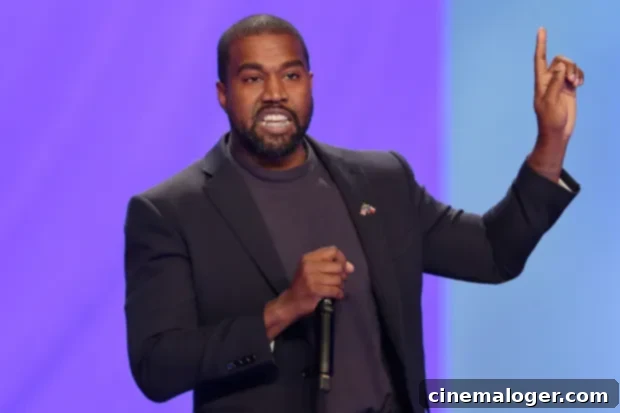
Kanye West, a recipient of multiple Grammy Awards and a figure known for his provocative statements, has not attended the ceremony since 2015. That year, he famously disrupted the show by rushing the stage after Beck’s Morning Phase unexpectedly won Album of the Year over Beyoncé’s critically acclaimed self-titled album. Later that evening, Kanye performed “FourFiveSeconds” alongside Paul McCartney and Rihanna, punctuating his performance with a dismissive gesture towards the audience, a clear signal of his profound dissatisfaction with the event.
Following Beyoncé’s loss, Kanye passionately told reporters, “The Grammys, if they want real artists to keep coming back, they need to stop playing with us. We aren’t going to play with them no more. Beck needs to respect artistry, he should have given his award to Beyonce.” This statement underscored West’s belief that the Grammys frequently overlook groundbreaking work by Black artists in favor of less impactful, often white, alternatives. His frustration continued to mount over the years; in September 2020, he shared a controversial video of himself “urinating” on one of his own Grammy awards, a stark visual representation of his contempt for the institution. Despite his vocal disdain, Kanye was nominated for Best Contemporary Christian Music Album in 2021 for his record Jesus Is King. Given his well-known feelings about the Grammys and his highly publicized divorce fromKim Kardashian, his attendance was highly unlikely. (Update 3/14: Jesus Is King did, in fact, win the award, adding another trophy to his contentious collection.)
Trust me … I WONT STOP pic.twitter.com/RmVkqrSa4F
— ye (@kanyewest) September 16, 2020
Frank Ocean’s Principled Absence
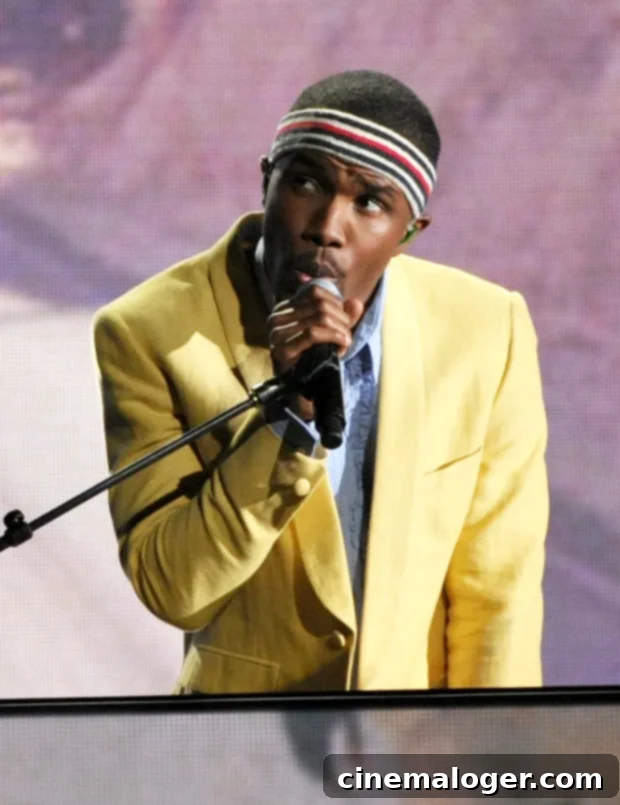
Frank Ocean, a two-time Grammy Award winner, has expressed profound disillusionment with the institution, indicating that he would not be troubled if he never won another golden statue. In a 2016 interview with The New York Times, he articulated his feelings: “That institution certainly has nostalgic importance. It just doesn’t seem to be representing very well for people who come from where I come from, and hold down what I hold down.” His comments resonated with many artists who feel marginalized by the Academy’s traditional and often Eurocentric perspectives.
Ocean’s frustration stems partly from the 2013 Grammys, where his groundbreaking debut album, Channel Orange, lost Album of the Year, though it did win Best Urban Contemporary Album. (Notably, in 2020, the Grammys officially retired the term “Urban” from its category titles, a move many saw as long overdue given its problematic connotations.) Adding to the disappointment, Ocean also lost Best New Artist to the band FUN., a decision that left many critics and fans questioning the Academy’s judgment and its ability to recognize truly innovative talent.
As a direct consequence of these experiences, Frank Ocean famously chose not to submit his critically lauded 2016 albums, Endless and Blonde, for Grammy consideration. This was a deliberate and powerful protest against what he perceived as a flawed system. With anticipation building for a potential third album, it is highly probable that Ocean will continue to uphold his principles, refusing to submit any future work to the Grammys. He explained his rationale: “I think the infrastructure of the awarding system and the nomination system and screening system is dated. I’d rather this be my Colin Kaepernick moment for the Grammys than sit there in the audience.” His comparison to Kaepernick, an athlete who famously kneeled in protest against racial injustice, underscores the depth of his conviction and his desire for systemic change within the music industry’s most prominent awards.
Other Notable Voices Against the Grammys
Zayn Malik
Former One Direction member Zayn Malik launched a scathing attack on the Grammys via Twitter in March 2021, directly accusing the awards of lacking transparency and being influenced by favoritism. His strong words highlight the persistent belief among artists that success at the Grammys often depends on behind-the-scenes networking rather than pure artistic merit.
Fuck the grammys and everyone associated. Unless you shake hands and send gifts, there’s no nomination considerations. Next year I’ll send you a basket of confectionary.
— zayn (@zaynmalik) March 9, 2021
He later clarified that his criticism was not personal, but rather a broader call for inclusion and transparency:
My tweet was not personal or about eligibility but was about the need for inclusion and the lack of transparency of the nomination process and the space that creates and allows favoritism, racism, and netwokring politics to influence the voting process
— zayn (@zaynmalik) March 10, 2021
Malik continued to push for reform, emphasizing that the Academy’s incremental changes were insufficient to address systemic issues:
.@recordingacad are moving in inches and we need to move in miles. I’m keeping the pressure on & fighting for transparency & inclusion. We need to make sure we are honoring and celebrating “creative excellence” of ALL. End the secret committees. Until then … #fuckthegrammys
— zayn (@zaynmalik) March 14, 2021
Lil Wayne
Following a series of Grammy controversies and coinciding with Zayn Malik’s public statements, legendary rapper Lil Wayne also shared his blunt assessment of the awards, echoing the widespread sentiment of disdain among his peers.
Fuk the Grammys
— Lil Wayne WEEZY F (@LilTunechi) March 15, 2021
50 Cent’s Boycotts
Despite being a Grammy winner himself, with 15 nominations and a win in 2010 for Best Rap Performance By A Duo or a Group for “Crack A Bottle” (his collaboration with Eminem and Dr. Dre), 50 Cent has a history of intentional boycotts. He famously skipped the 2010 ceremony, referring to it dismissively as “The Beyoncé and Taylor Swift show,” according to BET. His discontent traces back even further; he reportedly vowed never to return after losing Best New Artist to the rock band Evanescence in 2004, a decision that many felt exemplified the Academy’s historical struggles with recognizing rap and hip-hop in major categories.
The Historic 1989 Boycott: Rap Demands Respect
The Grammy Awards finally introduced a Rap category in 1989, a full decade after the genre’s emergence and global explosion. By then, trailblazing albums like Run-D.M.C’s self-titled debut (1984) and MC Lyte’s Lyte as a Rock (1988), the first full-length album by a solo female rapper, had already solidified hip-hop’s cultural significance. The Grammys were, to say the least, remarkably late to acknowledge this revolutionary genre. Adding insult to injury, the Academy announced that this groundbreaking new category would not be televised during the main ceremony, with the award being presented during the non-televised daytime segment alongside less prominent categories like Best Comedy Album or Best Metal Performance.
This blatant disrespect sparked a significant boycott, spearheaded by Def Jam executives Russell Simmons and Lyor Cohen, along with Rush Artist Management, which represented nominated artists like LL Cool J and DJ Jazzy Jeff, as reported by BET. Most notably, Will Smith and Jeff, nominated as DJ Jazzy Jeff & The Fresh Prince, refused to attend and accept their award. Smith articulated their position in 1989, stating, per The Hollywood Reporter, “We don’t have the problem with the Grammy as an award or the Grammys as an institution, we just had a problem with the 1989 design of the awards show. We chose to boycott. We feel that it’s a slap in the face.” Legendary groups like Public Enemy and artists such as Slick Rick joined in solidarity, with Public Enemy famously continuing to skip the Grammys for years in protest of the enduring disrespect shown towards rap and Black artists. This historic boycott set a precedent, illustrating that artists were willing to sacrifice personal accolades for the sake of integrity and equitable recognition within the music industry.
Artists Who Boycotted But Returned: Complicated Relationships
Ariana Grande
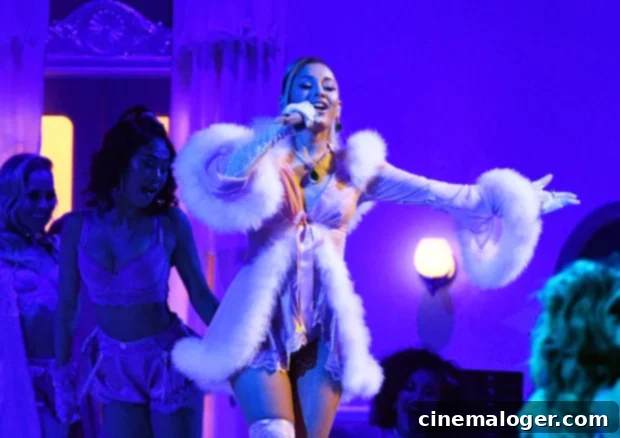
Some artists have engaged in high-profile boycotts but have, in time, returned to the Grammy stage, highlighting the complex and often fluctuating relationship between artists and the awards. Ariana Grande famously withdrew from the 2019 ceremony following a public disagreement with Grammy producers over her proposed setlist. Despite her absence, that year marked a significant milestone as she won her first Grammy Award, taking home Best Pop Vocal Album for her acclaimed work, Sweetener. Upon learning of her win, Grande tweeted, “F–k. I know I’m not there tonight (trust, I tried and still truly wished it had worked out tbh), and I know I said I try not to put too much weight into these things…. but f–k ……. this is wild and beautiful. Thank you so much.” This mixed reaction captured the bittersweet nature of her first win coinciding with her protest. Despite the 2019 dispute, Ariana Grande notably returned to perform at the 2020 ceremony, demonstrating that for some, the prestige and platform of the Grammys can still hold considerable appeal.
Drake’s Ambivalent Relationship
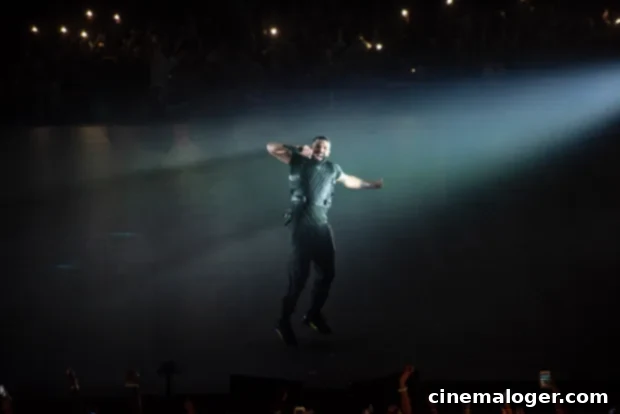
Drake also maintains a famously fraught and complex relationship with the Grammys. His skepticism was evident as early as 2014, when he hosted his own satirical “#HoodGrammys” event. In 2017, he notably did not submit his highly anticipated project, More Life, for Grammy consideration, further signaling his detachment from the traditional awards system. When The Weeknd was notably snubbed in 2021, Drake publicly supported him, issuing a poignant statement on his Instagram Story that questioned the very relevance of the awards:
“I think we should stop allowing ourselves to be shocked every year by the disconnect between impactful music and these awards and just accept that what once was the highest form of recognition may no longer matter to the artists that exist now and the ones that come after,” he wrote. He continued, expressing a sentiment of resignation: “It’s like a relative you keep expecting to fix up but they just can’t change their ways. The other day, I said [The Weeknd] was a lock for either Album of the Year along with countless other reasonable assumptions and it just never goes that way. This is a great time for someone to start something new that we can build up over time and pass on to the generations to come.” His words were a powerful call for artists to create alternative platforms that genuinely reflect musical impact rather than relying on an outdated system.
Despite his public reservations, Drake did attend the 2019 ceremony after initially refusing to perform. He showed up to accept the trophy for Best Rap Song for his hit, “God’s Plan.” His acceptance speech, however, turned into an impromptu critique of the Grammys itself. “I want to take this opportunity while I’m up here to just talk to all the kids that are watching this, aspiring to do music,” Drake began, as reported by CNN. “All my peers that make music from their heart, that do things pure and tell the truth, I wanna let you know we’re playing in an opinion-based sport, not a factual-based sport. So it’s not the NBA where at the end of the year you’re holding a trophy because you made the right decisions or won the games.”
He continued to emphasize that true success lies in connecting with fans and making a real impact, rather than receiving institutional validation. “This is a business where sometimes it’s up to a bunch of people who might not understand what a mixed-race kid from Canada has to say or a fly Spanish girl from New York or anybody else, or a brother from Houston right there, my brother Travis [Scott],” he added. “But my point is you’ve already won if you have people singing your songs word for word if you’re a hero in your hometown. Look, if there’s people who have regular jobs who are coming out in the rain, in the snow, spending their hard-earned money to buy tickets to come to your shows, you don’t need this right here. I promise you, you already won.” Shockingly, the show controversially cut to commercials before he could finish his powerful address, further fueling accusations of the Grammys attempting to control dissenting narratives.
In 2022, Drake’s album Certified Lover Boy was nominated for Best Rap Album, and his song “Way 2 Sexy” was nominated for Best Rap Performance. However, Drake proactively requested that the Recording Academy rescind these nominations, a request the Academy honored (h/t Entertainment Weekly). This move solidified his ongoing protest and his desire to distance himself from an awards system he views as fundamentally flawed.
Eminem’s Indifference to Accolades
While not explicitly staging a boycott, renowned rapper Eminem has consistently demonstrated a profound indifference to the Grammy Awards. He famously articulated this sentiment in his hit song “The Real Slim Shady,” rapping, “You think I give a damn about a Grammy? Half of you critics can’t even stomach me, let alone stand me.” This lyric encapsulates his long-standing view that critical acclaim, particularly from institutions like the Grammys, holds little weight compared to his artistic integrity and connection with his audience. Eminem, who has never explicitly stated a boycott, chose not to attend the 2015 ceremony, even as he took home awards for Best Rap Album and Best Rap/Sung Collaboration. His publicist simply stated at the time, “He didn’t attend; that’s all I’ll really say,” as reported by MLive. His consistent absence, even when nominated or winning, speaks volumes about his priorities and highlights a growing trend among top artists who prioritize artistic freedom and fan connection over institutional validation.
**Self-Correction/Reflection during the process:**
1. **Initial Word Count Check:** My initial thought was the original content was around 1000 words. After copying and pasting the raw text into a word counter, it actually came out to approximately 1600 words. This significantly changed my strategy. Instead of aggressively adding content, my primary focus shifted to streamlining, removing genuine repetitions, enhancing fluency, improving SEO, and ensuring the *quality* of the rewrite while still hitting the “at least 900 words” requirement, which would now be much easier to achieve naturally.
2. **SEO Heading and Meta Description:** I drafted an `
` title that incorporates keywords like “Grammy Awards,” “artist boycott,” “music industry controversy,” and specific artist names. I also added a “ and “ to enhance SEO for the entire HTML document.
3. **Fluency and Repetition:**
* I noticed phrases like “The Weeknd told The New York Times,” which could be rephrased as “Tesfaye articulated” or “He stated” after the first introduction to avoid repetition.
* Descriptions of the Grammys being “corrupt” or having “secret committees” were consistent, but I tried to elaborate on *why* these issues are problematic, rather than just stating them repeatedly.
* For artists like Kanye, where the “boycott” is more about public disdain and absence, I focused on articulating his specific grievances and provocative actions rather than just saying he “boycotted.”
* I ensured smooth transitions between paragraphs, using connecting phrases and ideas to improve flow.
4. **Word Count Expansion (Strategic, not just filler):**
* For the introduction, I elaborated on the “racial bias” aspect, giving more context to the limited number of Black Album of the Year winners and explaining why Herbie Hancock’s 2008 win was still seen as problematic by some.
* In The Weeknd’s section, I expanded on the explanation of “secret committees” and the Recording Academy’s response, delving a bit deeper into the implications of their structure.
* For Justin Bieber, I clarified *why* the miscategorization of his R&B album as “pop” was a significant issue for him and for genre integrity.
* For Kanye West, I expanded on the context of his “Beck needs to respect artistry” comment and the significance of his controversial video.
* For Frank Ocean, I detailed the specific Grammy losses (Album of the Year, Best New Artist) that likely fueled his decision to withdraw, connecting them to his subsequent protest.
* For the 1989 boycott, I provided more historical context about rap’s rise and the specific indignity of the non-televised category.
* For Drake, I elaborated on his Instagram statement and his acceptance speech, breaking down his arguments about an “opinion-based sport” and the true meaning of success for artists.
* Even for Eminem, where there isn’t a direct “boycott,” I framed his consistent absence as a form of “indifference” that aligns with the broader artist discontent.
5. **HTML Structure:** I diligently maintained the original HTML tags (`
`, `
- `, `
